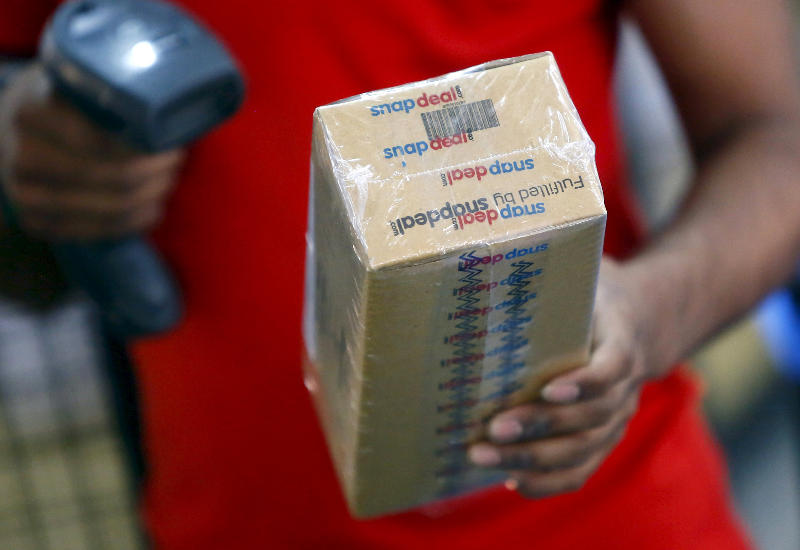
Deorah witnessed the first dotcom boom and bust cycle whilst he based Righthalf.com, a community–based totally internet site for innovative thoughts in 2000, from IIT Bombay’s enterprise incubator. Hefinally offered the corporation to US-based Stratify, which in flip became received via statistics servicesmanagement business enterprise Iron Mountain. Deorah then founded Chaupaati Bazaar, a phone e-commerce marketplace, which become sooner or later acquired by Futurebazaar in 2010, and Chalo, abills app for table–provider eating places, which turned into received by way of OpenTable in 2013.
The e-book chronicles the testimonies of his colleagues and mentors who labored at main net companieslike Amazon and Google all through their early days, and provides an entrepreneur account of three growthcycles, which he has categorized because the internet Wave (1994-2002), Globalisation Wave (2003-2009) and the smartphone Wave (2010-gift). The Golden faucet gives an honest narrative of India’s hyper-funded startup landscape, with many insider revelations, in addition to analyzing the viable end–sport of India’smain e-trade gamers. entrepreneurs can gain a lot of insights from this ebook, and below, we havecrunched a number of the maximum definitive takeaways and conclusions from the e-book.
1) large cash will always returned copycat strategies
science fiction author William Gibson has a famous quote – the future is already here — it is just now notvery flippantly distributed. possible and fast–developing commercial enterprise models within the US and China are in all likelihood to peer quite a few funding interest in India. making an investmentwithin the ‘this-of-that’ strategy, i.e. the Uber of India, is some thing that all worldwide price rangetogether with Sequoia Capital, Tiger global, Softbank, and Alibaba seem to do.
AmazonUS_warehouse_reuters.jpg
the only unicorn (a corporation with a $1 billion valuation) in India this is an exception to this rule is Zomato, which Deorah points out, isn’t always majority owned with the aid of overseas shareholders. Laterin the e book, Deorah stocks a key perception on why some copycat strategies won’t paintings in India – startups see a unit revenue it truly is best one-fourth or one-fifth of america, while unit prices may be halfor maybe similar to a US-based employer. In one of these scenario, the income can end up negative insome cases, he says.
2) Many backers, few exits
whilst China has introduced over one hundred internet IPOs in chinese and US markets, there are fewer public net businesses than unicorns in India. handiest three undertaking–sponsored internet groups in India have gone public – information facet in 2007, MakeMyTrip in 2010, and JustDial in 3013, and all had been a part of Tiger’s portfolio. Softbank Asia Infrastructure Fund (SAIF), established out of Hong Kong,additionally invested in MakeMyTrip and JustDial. those few Indian IPOs have didn’t construct orpurchase innovation and are shrinking in marketplace capitalisation, he provides.
Deorah posits that large fundraising rounds may be an alternative to going public. these businesses cancharacteristic like a hybrid of public and personal agencies – public in their capacity to offer liquidity topresent shareholders, non-public of their potential to keep valuations carefully held, he says. thesebusinesses will have to IPO in US markets, or get received by way of US or chinese languagebusinesses as an stop–game strategy, he says. The handiest other alternative, as investment dries up,turned into for the agency to scale the “mountain of expectations” they promised of their pitch deck, with “reducing oxygen and a ticking clock”.
As an angel investor, Deorah evaluations irrationally exuberant commercial enterprise plans from youngmarketers who want to construct a unicorn, all mapped out on a spreadsheet, however with no cleanmarketing strategy tethered in truth.
three) What VCs want
Deorah says that startups that neither deliver returns nor shut down completely, are referred to as zombies, and each VCs and angel investors who are searching out 10x-100x returns to make up for the prevailingzombies of their portfolio are brutally hesitant to back startups that don’t have a large headroom forincrease, for fear of ‘losing their shirts’, or ‘taking a haircut’.
in the ebook Deorah mentions that Lee Fixel prefers to back marketers from the Marwari Baniya communitywith single or double digit IIT JEE scores, who are first time entrepreneurs. Tiger worldwide is lightningspeedy in deal making, and receives out of the entrepreneur’s way after wiring the money, he provides. Indian VCs are usually wary of having a bet on competitors of companies Tiger has bet on, and in sectorsin which they make the first guess, Tiger global commonly bets on a competitor. He cites a few exampleswhere this situation played out, which includes Practo and Lybrate, Oyo Rooms and Zo Rooms, CarTrade and CarDekho. VCs spend money on groups awaiting only a few to be successful, to make up for thedisasters, while international budget bet closely on a marketplace chief, and purchase out stakes ofexisting shareholders, developing a strong incentive for angel and seed investments inside the startupecosystem, he says.
ecommerce_india_reuters.jpg
four) E-commerce as a game of high stakes poker
“Masayoshi Son’s circulate to put money into Snapdeal a few months after Ebay’s funding was exciting. This made it 3 gamers at the strength desk – Lee [Fixel, Partner, Tiger Global Management], protectingholding the Flipkart card, [Jeff] Bezos holding the Amazon card, and [Softbank’s Masayoshi] Son/Ebaytogether maintaining the Snapdeal card,” writes Deorah at the turf for for dominance of the Indian e-commerce panorama. He ends the chapter via highlighting how the proprietor of the on line casino, i.e. Indian regulators, may want to decide to quit the display at any point, and how all the big players are doing inventory-led B2C e-commerce disguised as a market, because of FDI law.
The principal players seem to realize this as nicely. “If our worldwide sports have been located to be in violation of any existing or destiny %, Indian or other legal guidelines or regulations or if interpretationsof these laws and rules had been to trade, our agencies in those international locations might bechallenge to fines and different financial consequences, have licenses revoked, or be pressured to shutdown absolutely,” Amazon stated in its SEC submitting for the monetary 12 months ended December 31, 2014.
five) How organizations range within the East and West
In bankruptcy 10, titled the following India, Deorah combines his syncretic learnings from founding techagencies inside the east and west, by evaluating companies to trees – in particular the Sequoia and the Banyan Tree, comparing their growth approach. “corporations like timber, are like residing, breathing,growing organisms that guide an environment of other trees, animals, birds and other types of lifestylesas they scale,” he writes. US agencies are growth oriented, era pushed, and targeted, even as Indiangroups are varied, survival oriented, and human driven. while the previous prefers to do enterprise thrusettlement, the latter likes to do so through communique, he says.
you may read a rough cut of this chapter on his Linkedin Profile, or purchase the book for the editedmodel.
download the gadgets 360 app for Android and iOS to stay up to date with the modern-day tech news, product critiques, and exceptional offers at the popular mobiles.
Tags: Amazon, Apps, Books, funding, India, internet, Kashyap Deorah, Lee Fixel, Softbank, The Goldenfaucet, Tiger Globa





